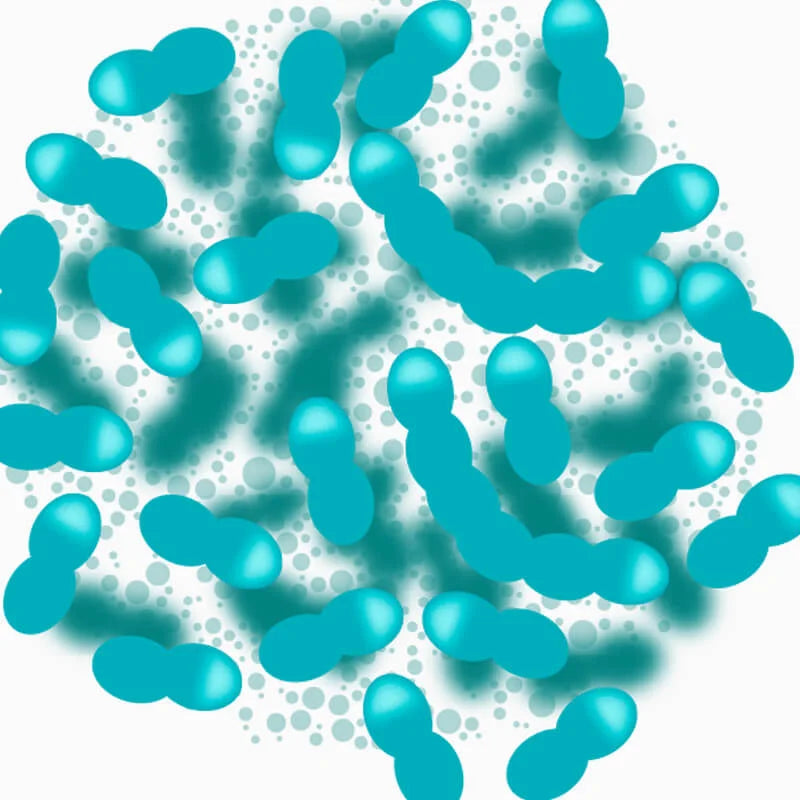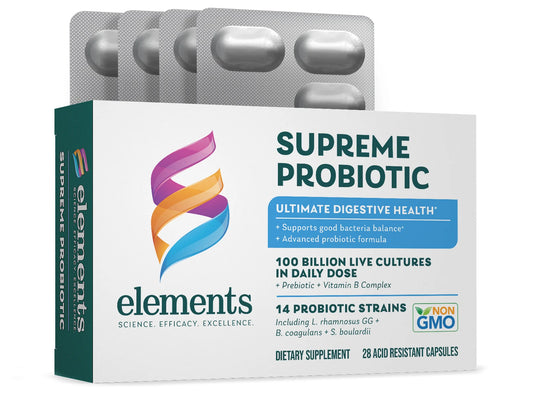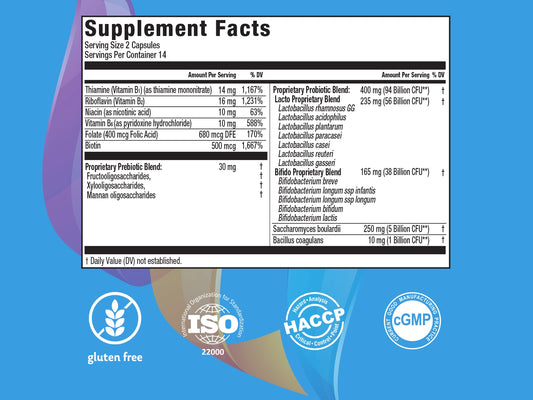Bacillus coagulans was first isolated from spoiled milk 1915 by B.W. Hammer, at the Iowa Agricultural Experiment Station.
A spore-forming bacterium, it’s able to produce lactic acid and various metabolites that have beneficial effects on the GI tract.
With its ability to form spores, the bacterial species Bacillus coagulans is resistant to extreme conditions and antibiotics. It survives the acidic gastric juice and bile acids in the duodenum while passing through the GI tract, and safely reaches lower intestines and colon, where it divides quickly to colonize the gut. The reported beneficial effects of B. coagulans include its ability to promote intestinal digestion, producing several enzymes that support normal excretion and degradation of the nutrients in the intestines. B. coagulans also supports the balance of gut microbiota, producing lactic acid and other metabolites that help selected good bacteria strains to thrive1,2.* B. coagulans helps balance immune cells’ functional activity, and significantly benefits the immune system3-5.*
- Nyangale EP, Farmer S, Cash HA, Keller D, Chernoff D, Gibson GR. J Nutr . 2015;145(7):1446-1452. http://jn.nutrition.org/content/145/7/1446.abstract.
- Hyronimus B, Le Marrec C, Urdaci MC. J Appl Microbiol. 1998;85(1):42-50.
- Cao J, Yu Z, Liu W, et al. J Funct Foods. 2020;64:103643. doi:https://doi.org/10.1016/j.jff.2019.103643
- Johnston BC, Supina AL, Vohra S. C Can Med Assoc J = J l’Association medicale Can. 2006;175(4):377-383. doi:10.1503/cmaj.051603
- Doron SI, Hibberd PL, Gorbach SL. J Clin Gastroenterol. 2008;42 Suppl 2:S58-63. doi:10.1097/MCG.0b013e3181618ab7




